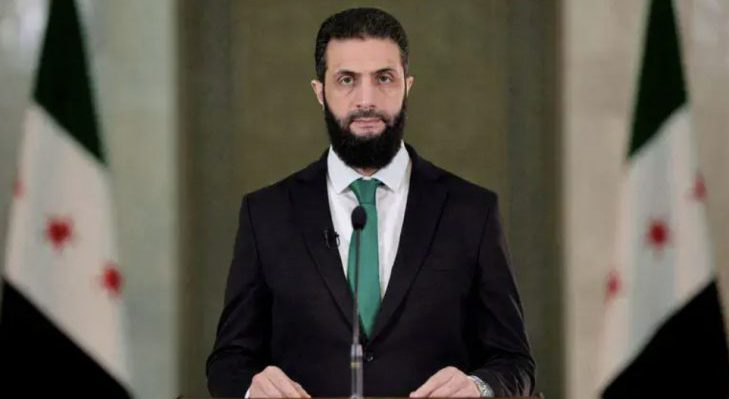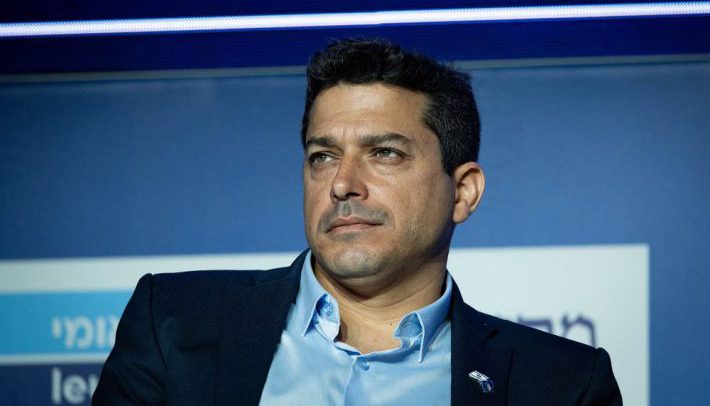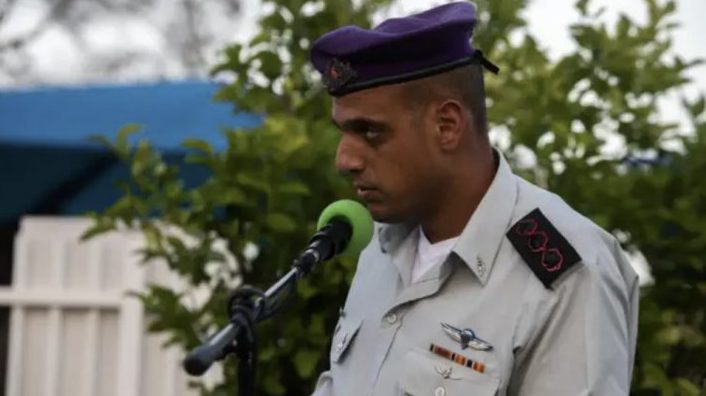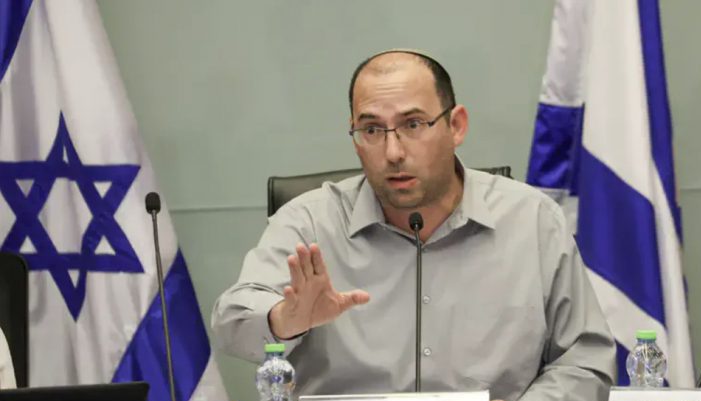In desperate push for removal of US sanctions, Islamist leader tells American lawmaker Syria wants to normalize ties with Jerusalem ‘under the right conditions’
New Syrian President Ahmed al-Sharaa said that Damascus seeks to normalize ties with Israel, US Congressman Cory Mills told Bloomberg on Thursday after a meeting with him last week in Syria.
Mills said he held talks with Sharaa about the conditions for removing US-imposed economic sanctions, as well as the possibility of peace with Israel, according to the report.
Sharaa told Mills during their meeting that Syria is interested “under the right conditions” in joining the Abraham Accords — the series of normalization agreements that US President Donald Trump’s previous administration negotiated between Israel and the United Arab Emirates, Bahrain and Morocco.
According to Mills, Sharaa is also open to clarifying how he plans to address the presence of foreign fighters still operating in Syria and offer guarantees to Israel, which remains deeply distrustful of the Syrian leader and opposes any easing of sanctions.
Syria’s new Islamist-led leadership has pushed for the US and Europe to fully lift sanctions so the country can kickstart an economy decimated by more than a decade of civil war. Mills, who serves on the House Foreign Affairs and Armed Services committees, and US Congressman Marlin Stutzman of Indiana, both landed in Damascus on Friday to meet Syrian officials, the first visit by American lawmakers to the war-ravaged country since Bashar al-Assad was ousted from power by an Islamist-led rebel offensive in December.
Mills met with Sharaa, who is still under US and UN sanctions for his previous ties to al-Qaeda, on Friday night, during which the two discussed the US sanctions and Iran for some 90 minutes.
Mills told Bloomberg that he will bring Trump a letter from Sharaa, without providing details on its contents, and that he will brief the US president and National Security Adviser Mike Waltz after his trip.
“I am cautiously optimistic and look to maintain open dialogue,” Mills said.
Mills and Stutzman, both members of Trump’s Republican party, toured parts of the Syrian capital destroyed by the war, met with Christian religious leaders, and said they planned to meet other Syrian government ministers.
“There’s an opportunity here – these opportunities come around once in a lifetime,” Stutzman told Reuters. “I don’t want Syria pushed into the arms of China, or back into the arms of Russia and Iran.”
Last month, the US gave Syria a list of conditions to fulfill in exchange for partial sanctions relief – including removing foreign fighters from leadership roles – but the Trump administration has otherwise engaged little with the new rulers.
Stutzman said Syrians in Damascus spoke to him about Israel’s strikes on the country, which have targeted military sites in the south as well as around the capital. Israel has also sent ground troops into a buffer zone in southern Syria and has repeatedly expressed its distrust of Sharaa.
“My hope is that a strong government is established in Syria that is supportive of the people of Syria, and the people of Syria support the government – and that the relationship between Israel and Syria can be a strong relationship. I think that’s possible, honestly, I do,” Stuzman said.
Among the conditions placed by the US to remove its sanctions on Syria is the destruction of any remaining chemical weapons stores and cooperation on counter-terrorism, sources told Reuters last month.
In return for fulfilling all the demands, Washington would provide some sanctions relief, sources said. One specific action would be a two-year extension of an existing exemption for transactions with Syrian governing institutions and possibly the issuance of another exemption.
The US would also issue a statement supporting Syria’s territorial integrity, reported Reuters, adding that Washington did not provide a specific timeline for the conditions to be fulfilled.
Syria’s aims and Israel’s mistrust
In a past interview with The Economist in February, Sharaa explicitly said he doesn’t rule out regional normalization, but noted that accomplishing it with Israel is complex.
When asked if he could establish ties with Israel as part of a broad peace deal in the Middle East, Sharaa said his country “want[s] peace with all parties, but there is great sensitivity regarding the Israeli matter in the region.”
He named the three major wars fought between Israel and Syria, and Israel’s control over the captured Golan Heights since 1967, as complicating issues.
Israel has since annexed the portion of the Golan Heights that it captured in 1967, and the move was recognized by Trump in his last term. However, it has not been recognized by the rest of the international community.
“We entered Damascus only two months ago, and there are many priorities in front of us, so it is too early to discuss such a matter because it requires a wide public opinion. It also requires a lot of procedures and laws in order to discuss it, and to be honest, we have not considered it yet,” Sharaa said at the time.
The report on Sharaa’s desire to join the Abraham Accords is not surprising, said Carmit Valensi, senior researcher on Syria and head of the northern arena program at the Tel Aviv-based Institute for National Security Studies (INSS).
“Al-Sharaa has made several comments in recent months expressing an interest in peace with their [Syria’s] neighbors and saying they have no desire to enter into conflict with Israel,” she told The Times of Israel.
Valensi acknowledged “the restrained and cautious policy” Sharaa has adopted toward Jerusalem, saying how “Despite the IDF’s presence in Syrian territory, despite the intense airstrikes and Israel’s demand to demilitarize southern Syria, [Syrian leaders] have not tried to act against or challenge Israel—in fact, they’ve generally maintained moderate rhetoric toward it.”
A day after the fall of the Assad regime, Israel sent its troops into a UN-patrolled buffer zone separating Israeli and Syrian forces on the strategic Golan Heights, where it now maintains a military presence. The IDF has described its presence in southern Syria’s buffer zone as a temporary and defensive measure, though Defense Minister Israel Katz has said that troops will remain deployed in the area “indefinitely.”
Israel has repeatedly declared its mistrust of Hayat Tahrir al-Sham, the Islamist faction headed by Sharaa that toppled Assad and emerged from a group that was affiliated with al-Qaeda until it cut ties in 2016. Israel has also expressed its intention to prevent Syria from falling into the hands of any hostile regime.
Israeli and Turkish delegations met in Azerbaijan earlier this month for Syria deconfliction talks aimed at preventing unwanted incidents as both countries’ militaries operate in the country.
Last month, Foreign Minister Gideon Sa’ar rebuked Sharaa and called for international condemnation of the actions of Syria’s new rulers, after reports that over a thousand civilians were massacred in the country’s Alawite heartland.
“They were jihadists and remain jihadists, even if some of their leaders have donned suits,” said Sa’ar, referring to Sharaa.
Trump’s ambitions and the “right conditions”
Trump vowed in March that more countries would be added to the Abraham Accords, speaking to reporters at a cabinet meeting at the White House.
US Vice President JD Vance added that with the return of Trump to the White House, they are being tasked with “building out the Abraham Accords, adding new countries to it,” and that while it’s “early, we’ve made a lot of progress.”
Trump reiterated this on Thursday.
Asked whether he deserves the Nobel Peace Prize, Trump responded, “Maybe for the Abraham Accords.”
Speaking to reporters in the Oval Office, the American leader reiterated his claim that additional countries will normalize relations with Israel through brokering from the US. “We are going to be filling it up very rapidly… A lot of countries want to come into the Abraham Accords,” he said.
“There’s no doubt that it takes a fair amount of courage to make such a statement,” said Valensi about Sharaa’s expression of interest in normalizing ties with Israel.
“Sharaa is already facing serious criticism over the moderation process he’s undergoing, and that criticism is only going to intensify now. The question is the second part of the sentence: what does he consider the ‘right conditions’? That’s what we’ll need to find out.”
“I think it will be easier for [Syria] to move [toward normalization with Israel] if there’s also progress with Saudi Arabia, so the move would be perceived as part of a regional trend,” Valensi continued.
“As for the conditions, they could range from a minimal demand for troop withdrawal and a halt to attacks, to more strategic demands regarding the future of the Golan Heights—an Israeli withdrawal, or at the very least, a declaration of it as a demilitarized zone or under joint control.”
In a sign that Sharaa was moving beyond talk, Palestinian media reported Tuesday that the new Syrian regime arrested Khaled Khaled, in charge of the Syrian arena in the Palestinian Islamic Jihad terror organization, and Abu Ali Yasser, responsible for the organization’s executive committee in Syria, though there was no official confirmation from Syrian authorities on the matter.
In an official statement, the PIJ said they were arrested in a manner “they wouldn’t expect” from Syria.





